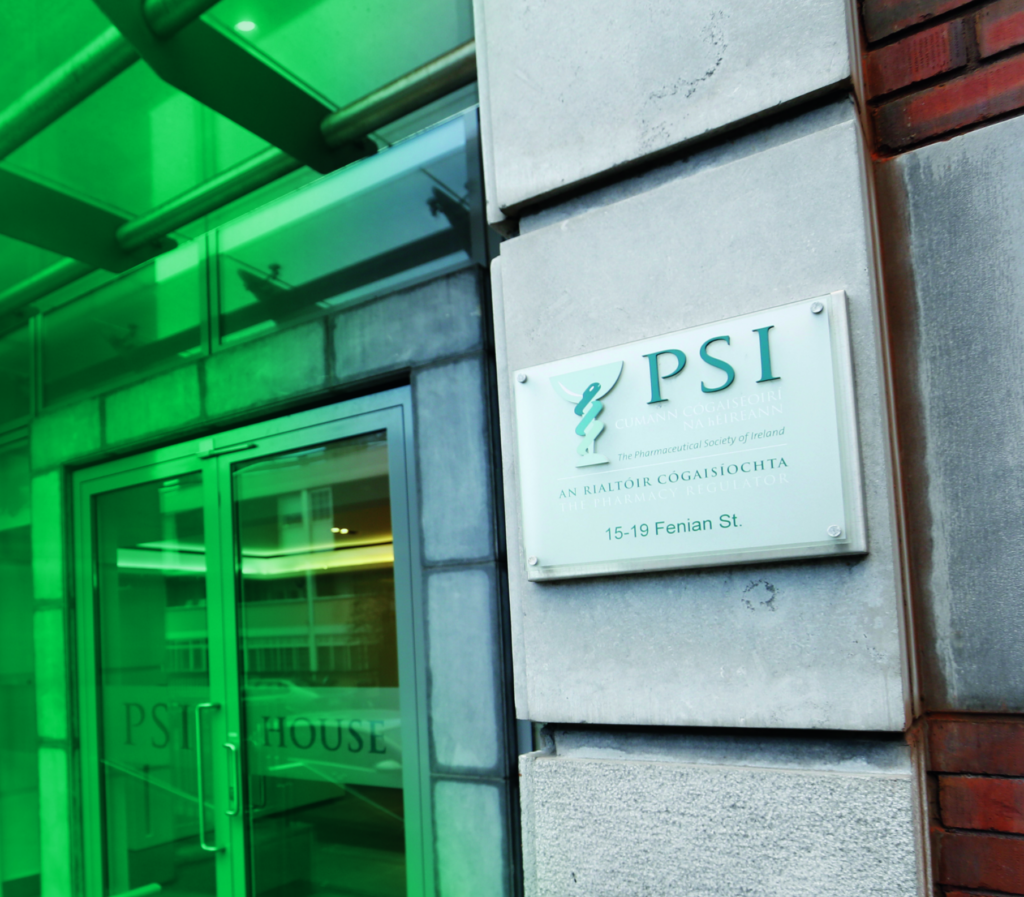Home » PSI Council Meeting: 24 April 2025

The meeting began with Registrar Joanne Kissane delivering some brief highlights from her report. These mainly centred on the daft communications strategy for the PSI to span the years 2025-2028, and Ms Kissane noted that it aligns with the objectives contained within the corporate strategy for the same period. She stressed the importance of “communicating our role and functions clearly and consistently”. It has been updated to ensure it accurately reflects all the various stakeholders the PSI engages with, and Ms Kissane noted they have heard clearly from patient partners that “co-design rather than consulting”, is the aim.
In relation to the communications strategy, Council member Cyril Sullivan commented on the “lack of numbers”, noting that the strategy does not commit to definite outputs such as a distinct number of press releases per year, for example. Communication and Engagement Officer Louise Canavan explained that the strategy differs from the implementation plan, which is in development and will be more detailed in terms of actions, but she also noted that with communications, much of the engagement is “fluid and reactionary”.
The Registrar also offered an update on the core funding review, noting that the tender process to find a provider commenced following the last Council meeting and that the process is now completed — the PSI expects to start work on the review with the successful provider by the end of April.
The recent news that the Minister for Health has requested the PSI to develop guidelines for “enhanced price transparency” in pharmacies was addressed by the Registrar, who said it was important to reflect on the context within which this request was made. This included an enhanced legislative and operational focus on pharmacy and pharmacy services, the expanded role of pharmacy and the development of a common conditions service, and the ongoing rollout of services to ensure enhanced patient access in the community.
While the pricing of medications remains outside the remit of the PSI, information on price transparency has been a focus for the Regulator since 2011, noted Ms Kissane, and its guidance on this is currently available on the website and remains relevant for pharmacists and pharmacies. The Minister’s request is aimed at improving patient access to information based on the range and quantum of professional service and dispensing fees, for example, in a conspicuous location, and at the point of dispensing, for example, via itemised receipts, while also embedding this approach into the PSI’s monitoring processes.
An extended and robust discussion took place following Ms Kissane’s presentation, with many pharmacy members expressing their serious concerns at the move. Pharmacist member Mark Jordan said he took issue with the word “transparency”; “Pharmacists and pharmacies did not appreciate the use of this word . . . They often find themselves at a loss because of moral and ethical obligations,” he said. “Pharmacists and pharmacies are already transparent.” The remit of the PSI does not include pricing, he added.
In response, Ms Kissane noted that the remit has not changed but said that listening to patients in the HPRA Patient Forum has shown that “patients feel that this information should be readily accessible to them and don’t want to have to ask”.
According to pharmacist Council member Emily Kelly, there is “huge competition” in the market at the moment and she said pricing is a factor as to why people might change pharmacy. She also pointed out that it can be very difficult on a specific product to give a price, “thus it may not appear as transparent as it actually is”, and she also added that if pricing of certain items is going to be broken down into granular detail, this may ultimately confuse the consumer.
Ms Kissane said the intention is to involve patients and public in this process and she also noted that pharmacists are entitled to charge a dispensing or service fee; “The goal is principle-based guidelines at a high level”, she stated. “In terms of benchmarking, some countries have to price every molecule, we aren’t proposing anything like that.” Given there will be a charge associated with providing the common conditions service, however, “we are entering a changing landscape”.
Pharmacist Council member Sean Reilly spoke strongly against the proposal, stating that most pharmacist colleagues he has spoken to see this as a stunt by the Minister to “politicise the PSI”. He echoed Ms Kelly saying that pharmacies are “extremely price sensitive” and he suggested the Minister would create a public backlash; “Everyone has different costs of supplies,” said Mr Reilly. “Dragging the PSI into this is not going to work.”
In contrast, Council member Professor Laura Sahm said she sees the move as “an opportunity”; “Since I qualified 30 years ago, I believe that we should be paid for a service rather than an item taken off a shelf. I believe the Department of Health is finally recognising this and that we should be paid for our qualifications and expertise.”
Council member Cyril Sulivan raised the issue of how this would align with consumer law and competition law, as did Dr Paula Barry Walsh, who said she had concerns about the risks of this, as well as the legislative scope. Ms Kissane emphasised the narrow scope of the request and in relation to the embedding of this approach into the PSI monitoring, she said it would simply become part of their own section 67 inspections where they will seek to see if pricing information is displayed conspicuously in the pharmacy.
Council member Richard Hammond acknowledged the “realpolitik” of the situation, saying the Minister could just legislate for this; “If it’s someone in the Department, it’s likely to be a far blunter and less palatable instrument than the informed process that will result here.” Yet, he added that it is a “misguided” step by the Department of Health that will ultimately see prices increase; “This is inevitable… there is stuff you mentally write off in your own head, when forced to itemise it you will be more likely to charge appropriately for it.”
Members also asked if it was a “fait accompli” and Ms Kissane expressed her regret that they did not have time to come to the Council with the Minister’s request before responding publicly via a press release. The process has already begun, and this will be incorporated into the Regulator’s work plan for the year.
President Katherine Morrow expressed her belief that “we have to follow the process through” and reiterated that “principle based statutory guidance rather than the blunt instrument of legislation” is far preferable. Pharmacist member Rory O’Donnell noted that this matter will come under the aegis of the Regulatory and Professional Policy Committee “for the next while” and he suggested the Committee should furnish Council with regular updates on its progress, rather than a final draft of guidelines being presented.
Other business was then discussed, with Ann McGarry asking why registrations via both the EU route and third country route both seemed to be down significantly on last year. Ms Kissane said she believes it is just a “timing matter”, but acknowledged that it does seem to be a little quieter in terms of overall registrations so far in 2025.
“Pharmacists and pharmacies did not appreciate the use of this word (“transparency”)… They often find themselves at a loss because of moral and ethical obligations. Pharmacists and pharmacies are already transparent.”
The request for approval from Council of the PSI’s Communications Strategy 2025-2028 was then granted, as was approval of a Presiding and Alternate Presiding Officer for the election of President and Vice President of the PSI Council. Rory O’Donnell then delivered his report to the Council from the Regulatory and Professional Policy Committee, the foremost matter of which was the consideration of an application for first-time recognition and approval of the MPharm Programme at the University of Galway. The accreditation team had visited the University in November 2024 and are recommending Council’s approval — this was subsequently granted.
The report to Council from the Special Purpose Committee saw a request for approval from Council of a revised process for appointment to the reserve panel for Chairs and Acting Chairs of the PSI Disciplinary Committees granted, while the Audit and Risk Committee gained approval from Council for updated versions of four key policy documents: the PSI Corporate Governance Framework, PSI Risk Management Framework, Internal Protected Disclosure Policy, and External Protected Disclosure Policy.
As the meeting closed, Ms Kissane took the opportunity to acknowledge the role of departing PSI Council members Rory O’Donnell, Louisa Power, Katherine Morrow, and Sean Reilly and thank them for their “immense contributions” over the years. “You will all be missed — Council will not be the same without you.”
The next PSI Council meeting takes place on June 26, when the new pharmacist members will attend.
The counting of votes in this year’s election of pharmacists for appointment to the PSI Council took place on 17 April 2025 at the office of the Dublin County Returning Officer in Dublin 11. The Returning Officer, PSI Registrar Joanne Kissane, declared the following five pharmacists elected for appointment to the PSI Council:
The Returning Officer will notify the Minister for Health in writing of the pharmacists selected. The Minister is responsible for approving all appointments to the PSI Council.
PSI Danielle Barron

Highlighted Articles